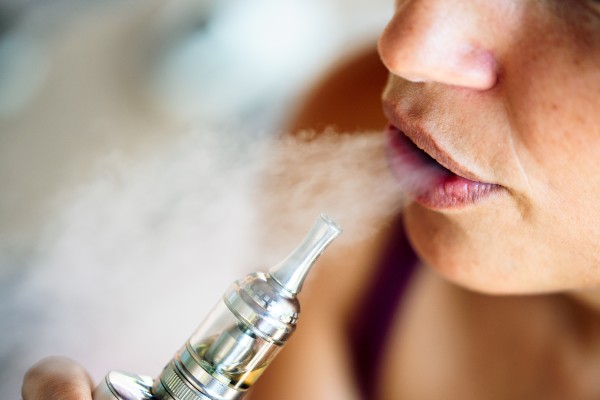With a known, direct link between smoking and lung cancer, we’ve been looking for an alternative to traditional cigarettes — and for new ways to help tobacco users successfully quit smoking — for decades. E-cigarettes have quickly become all the rage, thought to hold the promise of a healthier option for adult tobacco users.
“While many believed that e-cigarettes could well be the bridge to a smoke-free tomorrow, we now know that users may be trading bad for worse. As it turns out, they can do more harm than good,” says Vikas Pathak, M.D., pulmonologist with Riverside Health.
As of November 2019, the Centers for Disease Control and Prevention has confirmed 2,172 lung injury cases in the U.S., resulting in 42 deaths. However, while these lung conditions are dangerous (and sometimes fatal), they aren’t cancer. Since vaping is relatively new and the majority of users are young, it’s still too soon to draw a direct link between vaping and lung cancer.
What we do know is that e-cigarettes contain 15 times the amount of formaldehyde found in traditional cigarettes, and that this cancer-causing chemical is associated with increased risk of lung, oral and bladder cancer.
How do e-cigarettes work?
Also called vape pens or e-hookahs, these devices turn liquid into an inhalable aerosol. E-cigarette users simply purchase a starter kit, charge their pen and click in the cartridge of their choice when they’re ready to vape.
Why have e-cigarettes become so popular, so fast?
Today’s e-cigarettes are sleek and offer some undeniable conveniences, such as pleasant-smelling vapors and no mess. Cartridges also come in a variety of flavors that appeal to a larger base of consumers compared to traditional cigarettes, including a much younger base of users than ever imagined.
A recent study in theNew England Journal of Medicine reported that about 25 percent of high school seniors, 20 percent of sophomores and 9 percent of eighth-graders vape. In fact, the study noted that the vast majority of users are under age 35. It also indicated that vaping appears to exceed any other kind of substance use in teens, including alcohol and marijuana.
Some of the reasons? According to a survey conducted by the National Institute on Drug Abuse, teens:
- Are looking for ways to relax and connect with their friends
- Believe vaping is less harmful than smoking
- Like the vapor flavors
- Want to experiment
And, over time, those reasons continue to evolve. After one year of using e-cigarettes, teens shared that while these reasons are reflective of why they started vaping, the reason they continue to vape is quite simply because they’re hooked.
What does vaping do to your lungs?
Many experts note that e-cigarette mist contains fewer harmful chemicals than smoke from burned tobacco products such as carbon monoxide and tar. Others consider vaping even more dangerous than smoking. Why? “Because while most people know cigarettes cause cancer, so many believe that vaping is a safe alternative,” shares Dr. Pathak.
However, highly addictive nicotine and other chemicals like formaldehyde could potentially reach your lungs when vaping. E-cigarette use comes with some very serious health risks, such as respiratory issues like EVALI and even the risk for developing cancer.
But does vaping cause lung cancer? Only time will tell. Since e-cigarettes haven’t been available long enough for researchers to understand their long-term effects, more time and research is needed. Lung cancer is typically diagnosed in most cases after the age of 65. It may take a generation for us to determine if there is a direct and significant connection.



